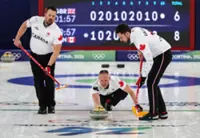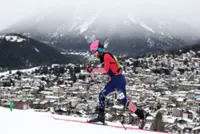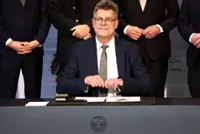PARIS (Reuters) - Germany's Paulina Paszek and Jule Marie Hake and Hungarians Noemie Pupp and Sara Fojt faced an agonising wait to see who came third in the final of the women's kayak double 500m Olympic final on Friday, and in the end both crews were awarded the bronze medal after judges could not separate them.
That led to a packed podium for the medal presentation and the media conference that followed as the tension of the minutes-long wait turned to joy for both teams.





